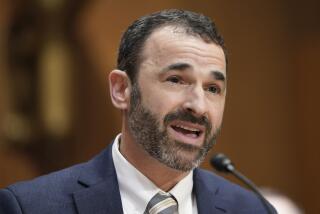EU demands Starbucks, Fiat pay back millions in tax breaks
The European Union on Wednesday demanded that Starbucks and Fiat repay up to 30 million euros ($34 million) each in back taxes, signaling the start of a broad crackdown on favorable tax deals for multinationals.
“All companies, big or small, multinational or not, should pay their fair share of tax,” EU antitrust Commissioner Margrethe Vestager said, as she announced that the Dutch government must claw back money from the U.S. coffee chain and Luxembourg from the carmaker.
Multinationals in Europe pay taxes in the country where they have their regional headquarters, and countries have long competed to lure the big companies.
That has resulted in some offering advantages that allow companies to pay very low tax overall. It has become a big political issue as citizens in many European nations are forced to tighten their belt because of the weak economy while some multinationals get away with huge tax breaks.
Even among businesses, small companies are unlikely to get the same tax advantages multinationals can get and clamping down on the practice could create a more level playing field.
The EU’s executive branch, the Commission, has been tightening the loopholes in EU law and Vestager underlined that it is investigating similar tax practices in all of the bloc’s 28 nations.
Wednesday’s ruling was the first big decision to emerge. It could cause dozens, even hundreds, of companies that are suspected of having tax deals with EU states to have to revise their tax setup. Probes have already been launched into companies like Apple and Amazon.
“We do not stop here. We continue the inquiries into tax rulings,” Vestager said. “More cases may come if we have indications that EU state aid rules are not being complied with.”
Vestager also said that the Commission is mulling whether to give more tax guidance to member states and she raised the possibility that binding rules could be imposed on companies in the future.
Wednesday’s ruling means authorities in the Netherlands and Luxembourg have two months to do the math and start recovering back taxes — between 20 million and 30 million euros ($23 million and $34 million) — from Starbucks Manufacturing and Fiat Finance and Trade, which are entities of Starbucks and Fiat.
Vestager said Fiat’s taxes “would have been 20 times higher if calculations had been done at market conditions.”
Starbucks said in an immediate reaction that it plans “to appeal since we followed the Dutch and OECD rules,” referring to the Organisation for Economic Co-operation and Development, a watchdog for developed economies.
Fiat Chrysler denied receiving any state aid from Luxembourg for its financing branch. It said a deal it reached with Luxembourg was aimed only at clarifying pricing rules.
Both Luxembourg and the Netherlands also made clear they had objections to Wednesday’s ruling and can appeal.
“The Netherlands is convinced that actual international standards are applied,” the Dutch government said in a first reaction. The government in Luxembourg said it “does not consider that Fiat Finance and Trade has been granted incompatible state aid.”
Vestager acknowledged that the parties have a right to appeal. “It’s a Union of law, so perhaps we will see each other in court,” she said. Under EU law, the Commission can only order the recovery of state aid plus interest. Were the two cases to go to court, the judges could order that additional fines be paid.
The issue of sweet tax deals has proved particularly embarrassing to the president of the European Commission, Jean-Claude Juncker, who was a long-serving prime minister of Luxembourg.
Juncker has denied being a part of the problem. “I have never given illegal tax instructions,” he told EU lawmakers last November. “Don’t depict me as a friend of big capital.”
———
Raf Casert can be followed on Twitter at https://www.twitter.com/rcasert






